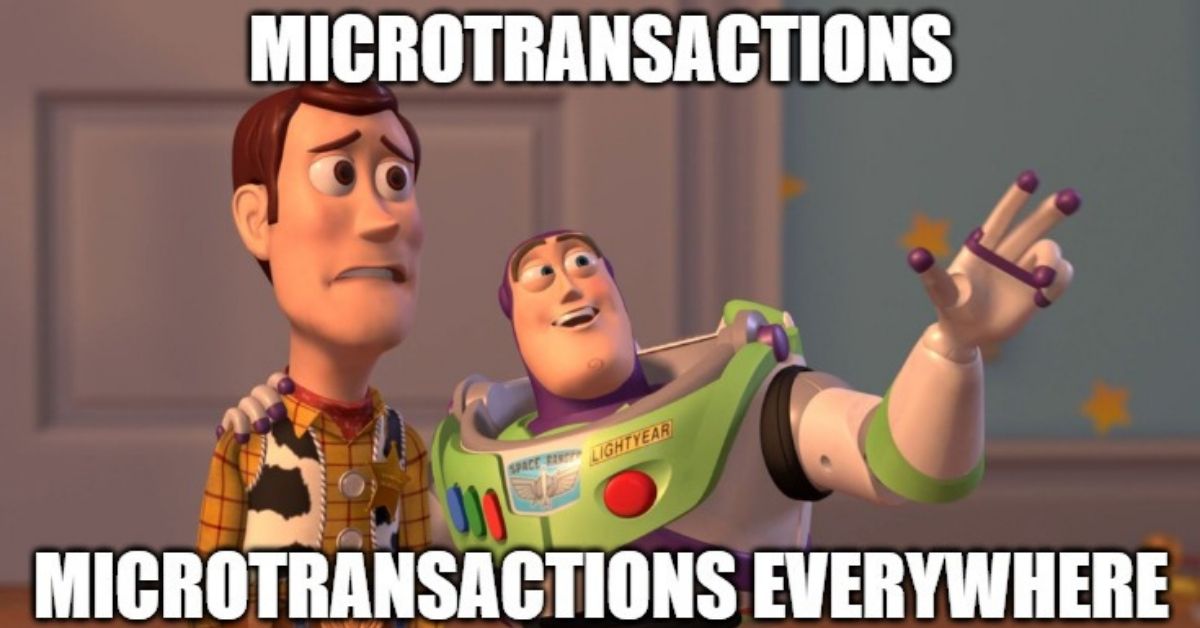I’m sure you’ve heard stories of microtransactions before, with some even making it into the news: How someone spent their life savings on a game; how someone lost thousands from gambling at in-game casinos, and so on.
Even if it has yet to affect you, it should be an issue worth your attention and action since your loved ones might not be as cautious of microtransactions as they should be.
With more companies slowly veering towards creating games with microtransactions, one of the easiest actions we can take to combat that is through parental controls, particularly for people with children who game.
It’s A Pretty Serious Problem
Senators in the US are already pushing for microtransactions to be banned in games. Laws were passed in Belgium to prohibit loot boxes in games.
Dictionary Time: A loot box is an in-game purchase consisting of a virtual container that awards players with items and modifications based on chance. Lootboxes are considered to be a type of microtransaction.
WhatIs.com
Lootboxes, in general, aren’t evil. However, the problem lies with the many companies who are trying to shove it down the throats of their users incessantly.
Some games even make it harder for you to progress if you don’t make purchases on certain packages meant to “help” you. Imagine needing to pay RM200 for a game and then being pestered to fork over an additional RM50 to speed up your progress.
While more responsible and older gamers may think before they spend, the same can’t be said for the younger gamers, or even those who are prone to gambling.
In July, 4 siblings spent nearly £550 (that’s about RM2,770!) buying player packs in FIFA Ultimate Team to try and get their favourite player, Lionel Messi.

In FIFA Ultimate Team, players are obtained by buying player packs. The chances of getting your favourite footballer are slim, so you’re encouraged to spend to increase your chances.
The parents weren’t even aware that their kids were spending money in the game until their card was declined.
Another family had their 22-year old disabled son clear out his life savings of £3160 while playing a game called Hidden Artifacts.
The takeaway of these 2 examples is that microtransactions can be carried out way too easily by anyone, and the most common people who fall victim to them are kids or gamers with gambling tendencies.
To make things worse, UK officials don’t classify loot boxes as gambling, as there is “no official way to monetise them”.
Kerry Hopkins, the vice president of legal and government affairs of EA even appeared before a House of Commons committee in the UK said that the company (EA) prefers to call loot boxes “surprise mechanics”.
Of course, this angered the gaming community and memes spawned left and right.
How Can We Curb Microtransactions?
It seems that microtransactions are here to stay and while there isn’t much we can do to stop them from steam-rolling, there are parental controls on 5 online game stores to prevent your loved ones or yourself (if you’re prone to gambling) from overspending on microtransactions.
1. Google Play

Google Play isn’t very flexible in terms of preventing in-app transactions.
One of the ways we can keep our kids from accidentally spending is via an option called “Require authentication for purchases” and set it to all purchases.
If they were to buy something in-game, they will need a password set by the owner of the Google Play account (usually the parent). However, if they have the password, there’s another step that can be enabled called Fingerprint Recognition.
This means that purchases are done through a fingerprint scanner. My imaginary kids could technically still use my fingerprint when I’m sleeping to buy their Fortnite skins, but it’s gonna be a tad difficult.
2. Apple App Store

Apple is a little bit more useful when it comes to in-app purchases. Trying it out on my iPad, I went to the settings, and under “screen time”, found an option for me to disable in-app purchases with just a toggle of a button.
To me, this is more useful than what Google Play offers. It was a little disappointing to me knowing that Google didn’t put much effort into tackling this issue.
3. Nintendo Switch

One of the main consoles of the year, the Switch does pretty decently when it comes to preventing unauthorised purchases.
This only works if the child is on a family group account, however. To do so, all I have to do is go to the Nintendo account website, create an account for my kid and disable spending/purchases on Nintendo Switch eShop.
If they know the password for your main account, then you might just be out of luck.
4. PlayStation Network

The PlayStation 4 is one of the best-selling consoles of the year and possibly the decade.
Editing or adding Parental Controls isn’t too difficult. All I had to do was go to the Sony Entertainment Network website and all the options were laid out there.
Once I keyed in all the necessary details for a child account, I could then set content blocking depending on age, the use of Browser or VR on the console, as well as one that I find fairly unique—the ability to set a monthly spending limit.
This will allow my kids to still spend some on games, but only within the limit that I’ve set.
5. Microsoft Store

While Xbox is not a particularly popular store here in Malaysia, they do have a parental control that allows you to block off purchases from your kid’s account.
A unique feature that I’ve not seen from other stores is the option to disable purchases until said kid has a parent’s permission.
If I don’t want to be super controlling, I can enable the option of Microsoft emailing me after a purchase is made so I’m at least aware of how much is being spent and how often it happens.
Final Words
As someone who might have kids in the future, I have to be more proactive if I want to prevent my kids from overspending on all these microtransactions that are constantly in all the games we play.
Having parental controls in games is just one way of prevention.
However, if I want changes in the way the gaming market works, I have to vote with my wallet and hit the developers where it hurts the most.
This means that microtransactions in the games I play won’t be getting a single cent out of me.
- You can read about the stance of Malaysian mobile game makers on freemium versus premium models here.









